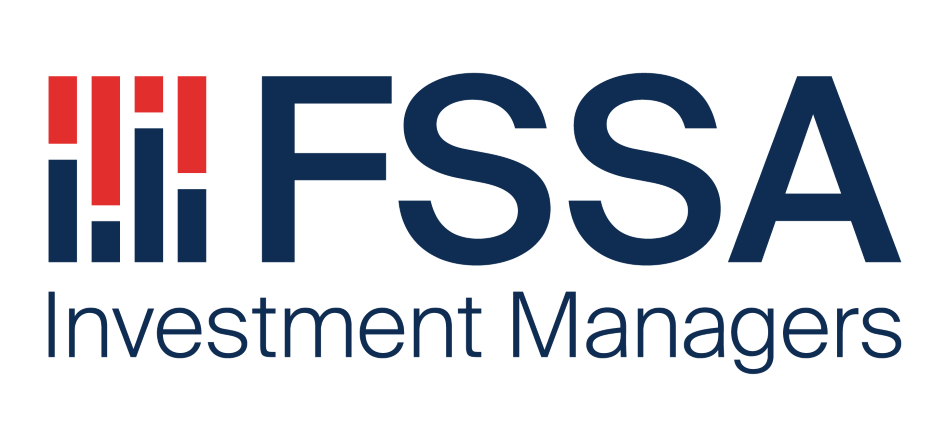Your search returned more than 50 results. The 50 most relevant results are displayed.
Head of Short Term Investments and Global Credit Tony Togher discusses negative interest rates in Australia, the ongoing role of cash in portfolios and gives insight into how the largest cash manager in Australia continues to add value when rates are low.
Facing our largest deficit since 1945, the question is how has the Federal Government set Australia’s course for the next decade. While the focus of the budget stimulus is aimed at mitigating some of the economic risks, our debt is forecast to climb to 44% of GDP by 2024 – a level inconsistent with a AAA credit rating.
Leading global investment manager, First Sentier Investors, and boutique European alternative credit manager, AlbaCore Capital Group Limited (AlbaCore) have received all regulatory approvals pertaining to their strategic partnership.
Leading global investment manager, First Sentier Investors (FSI), has entered into a strategic partnership with a leading European credit manager, AlbaCore Capital Group (AlbaCore), making a majority investment in the business.
As shareholders question ESG practices more than ever before, we spoke to our clients about how they are thinking about ESG when managing their funds. From reducing emissions to corporate culture and ESG risk assessments, the conversation highlighted the industry’s approach is not uniform but we are all grappling with the same issues.
A new study has found that on average people could be ingesting approximately 5 grams of plastic every week, which is the equivalent weight of a credit card.
Global investment manager, First Sentier Investors, today announced changes to its investment capabilities within Australia.
Find out more about our short term investment cash funds today. They aim to provide a regular income from investments in money market securities.
The Novel Coronavirus (COVID-19) pandemic has seen most financial assets sell-off across the board, including securities in the traditionally defensive listed property sector, as investors grapple with how the drastic government and central bank responses to the crisis will augur for property landlords in the shorter term.
The First Sentier Wholesale Strategic Cash Fund (‘the Fund’) reported a positive return (0.0032 or 0.32%, gross of fees) for the month of October 2022. This result was a welcome development following the low interest rate environment of the last 2 years, which has seen cash as an asset class struggle to produce higher returns and gain interest. With inflation becoming a key focus globally, the Reserve Bank of Australia (RBA) has begun tightening monetary policy through hiking interest rates, which has seen increasingly positive prospective returns from cash portfolios. The Fund maintains ample liquidity and is well positioned to capitalise off of the current market conditions. This note will dive into the dominant factors driving performance as well as further detail of the investment team’s longstanding approach to managing the portfolio which remains unchanged.
Shares, bonds, and alternative asset classes tend to dominate media attention and headlines, but there's a forgotten asset class that underpins most investors’ portfolios: cash. Record low interest rates around the world saw cash fall out of favour with investors in recent years, but prospective returns from cash portfolios are now rising again owing to higher official interest rates in key regions. In this paper, Tony Togher, Head of Fixed Income, Short Term Investments and Global Credit, explains some of the different investments that fall under the category of 'cash', some of the risks to be aware of and, finally, outlines the investment case for cash.
With the support of MUFG Bank, Ltd., (MUFG Bank), First Sentier Investors has launched a private debt capability focused initially on loans to the renewable energy sector.
Learn about investing in fixed income today. First Sentier Investors' on-the-ground teams share investment ideas uncovered in developed and emerging markets.
We are entering a new era. The year 2024 will be unpredictable and clouded by many uncertainties. It will be marked by geopolitical risks, the ongoing taming of the inflation beast, and how the US Presidential election will impact markets.
Afterpay is one of Australia’s most discussed stocks. But with key buy now, pay later players only scratching the surface of the Australian retail market, Duskho Bajic, Head of Australian Equities Growth, sees room for new competition. Dushko explores the evolving buy now, pay later landscape and shares how he identifies companies poised for success in an interview with Livewire.
While the wild swings in share, credit, currency, and commodity markets have garnered most of the attention in the months following the COVID-19 outbreak, cash markets in Australia have seen some highly unusual movements that demand further scrutiny.
First Sentier Investors announced the appointment of Ashley Conn as Chief Financial and Strategy Officer.
People are are at the heart of our success as a leading global asset manager
First Sentier Investors is the world-leading provider of specialist investment capabilities. Discover how we provide research-led active investment management.
Global asset management group focused on providing high quality, long-term investment capabilities to clients. We bring together independent teams of active, specialist investors who share a common commitment to responsible investment principles.
First Sentier Investors, a leading global investment manager is pleased to announce the appointment of Adele Swan as the new Chief People and Culture Officer, effective 24 June. Ms Swan is based in Edinburgh, reporting to the CEO, Mark Steinberg.
COVID-19: implications for performance and portfolio positioning
First Sentier Investors, a leading global investment manager, is pleased to announce the appointment of Amanda Gazal as the new Chief Operating Officer (COO). In this role, Gazal who will be based in the Sydney office, will be responsible for overseeing the company's day-to-day operations and driving operational excellence to support the organisation’s growth strategy.
Leading global investment manager, First Sentier Investors (FSI), has appointed Kate Turner as Global Head of Responsible Investment (RI) and bolstered its RI team with four new appointments.
Credit portfolios with genuine Environmental Social and Governance (ESG) integration could be a canary in the coal mine for potentially difficult-to-quantify risks and opportunities, including those likely to stem from climate change and the energy transition. While governments globally move at different speeds to put in place net zero policies, ESG-focused credit investors are taking decisive, early action to reflect these factors in their portfolio allocations.
First Sentier Investors is pleased to announce two key leadership appointments, effective 1 January 2025. Harry Moore is appointed to the newly created role of Chief Commercial Officer; and Lauren Prendiville is appointed as the new Global Head of Distribution and Marketing.
Leading global investment manager, First Sentier Investors (FSI), today announced the outcome of a review of its existing investment capabilities against its strategy.
First Sentier Investors, a leading global investment manager, today announces that it is setting its first nature targets as a Taskforce on Nature-related Financial Disclosures (TNFD) Adopter, in the lead up to the inaugural Global Nature Positive Summit hosted in Sydney this week.
We crossed six US states meeting over 70 infrastructure management teams as well as customers and suppliers at three conferences. We visited three corporate head offices, several regulators and toured the country’s largest nuclear power plant.
The latest reporting season demonstrated the pace of economic recovery in Australia, and painted a positive outlook for quality Australian companies. Below are some insights that investors may consider as they look at their Australian equities portfolios in 2021.
Leading global investment manager, First Sentier Investors (FSI), today announced the appointment of Yoshiki Ueno to the role of Deputy Chief Executive Officer
First Sentier Investors, a leading global investment manager, is pleased to announce the appointment of Jamie Downing as the new Head of Distribution in EMEA, as the business continues to strengthen its global distribution team.
First Sentier Investors (FSI), a leading global investment manager today announced new Director of the Sustainable Investment Institute
First Sentier Investors launches the Sustainable Investment Institute
We pose the question – what if we could develop a way of predicting which companies are more likely to be suffering distress, and which were not? The idea contains three parts: A. Certain individual observations or metrics can separately tell us about stocks that might – in the near future – find themselves in trouble. B. If we combine enough of these metrics together – without overfitting – we can get synergy between the factors. C. If we build a smart model that is designed specifically to target corporate distress, then we can apply and refine the predictions from the metrics in a better way.
Since our last update, global markets have not been short of action and the manic behaviour characterising today’s markets has taken investors on another rollercoaster ride. While not quite comparable to the market movements seen during the dark days of March 2020, the recent correction — especially in China-related companies — has been notable. Yet, from a market perspective, a sense of normality is finally starting to emerge after the more speculative phases over the past 12-18 months. Companies related to the Work- or Consumed-From-Home environment are starting to discount a more realistic outlook and, equally, franchises with good long-term prospects that were experiencing temporary uncertainties caused by the pandemic have, for the most part, regained some of the lost ground as their underlying business fundamentals continue to improve.
Head of Global Property Securities Stephen Hayes: Global city populations continue to grow, driven by urbanisation. The provision of housing for growing populations is a major challenge for many countries and cities. Adequate housing is a factor that influences a city’s mobility of labour, social wellbeing and commerce levels. Government housing policies are typically viewed holistically with policies covering social, private and rental housing. New supply is not always efficient and can be problematic particularly in densely populated cities.
It’s easy to follow the crowd into some of the world’s largest and most expensive companies. It’s much harder to invest with a contrarian focus on the metrics that really matter. Investing from a global universe of 15,000 stocks across Australian, Global and Emerging markets, Andrew Francis, Chief Executive of $32.2 billion investment firm RQI Investors, shares his learnings about the mistakes that weigh investors down in global markets and the unconventional yet telling data his team focus on.
With strong long term growth prospects and a track record of resilience through economic downturns, this increasingly institutionalised property sector is a defensive play for investors.
This year’s August 2024 reporting season has concluded with most ASX-listed companies disclosing their profit results and guidance for the 2025 financial year ahead.
Australia has fewer homes per adult than most of the developed world. First Sentier Investors Head of Global Property Securities Stephen Hayes is joined by Stockland Development CEO Andrew Whitson to unpack the challenges in meeting Australia’s growing housing demand – and where growth may emerge next.
Public policy support for infrastructure investment to remain strong globally, especially for the replacement of aged infrastructure assets and buildout of renewables. Utilities are in the midst of a multi-decade structural growth story. But higher capex needs to be managed in the context of affordability, reliability and sustainability. Earnings likely to be more resilient than global equities, albeit growth tempered by higher debt costs and increased regulatory and political risks. We expect the asset class to deliver mid-single digit EBITDA, EPS and DPS1 growth over the next two years despite a potentially challenging economic backdrop.
Listed infrastructure has offered investors attractive risk-adjusted returns and lower correlations to traditional asset classes. This outcome has been achieved by providing effective downside protection during periods of equity market weakness.
Despite straddling two of the most disrupted years in living memory, the FY20-21 reporting season was overall very positive. In our analysis, around one-third of companies [that we cover] surprised us on the upside, around one-third delivered in line with expectation, and one-third were below expectation. Our investment approach focuses on selecting companies with strong return on equity and return on invested capital, and these companies delivered superior returns overall. We actually saw EPS grow by 26% over the previous corresponding period, and expect a further 20% growth in the financial year ahead. Put simply, investors in quality stocks were rewarded by strong performance through the reporting season. We were also pleased to see that overall, Australian companies have strong cashflow and balance sheets.
If “they” are right, then there is virtually never a bad time to be fully invested. The term "volatility” has become a euphemism. What people mean when they say, “markets have experienced some volatility” is that markets have gone down. You never hear a financial commentator bang on about those pesky volatile stocks that are up every single day and breaking new highs.
Concentration in equity markets has reached unprecedented levels. While this has driven remarkable returns for a narrow slice of the market, it raises critical questions about diversification, valuation, and risk for equity investors.
This final paper is somewhat shorter than the first two, and simply aims to look a little deeper into whether zombie firms appear in Realindex portfolios, and how a Quality factor acts as a repellent for these stocks. This is more important in Value-oriented portfolios as the potential appearance of lower quality “junk” firms, or even zombies, is higher here than in broader universes.
Our recent paper on Extreme Concentration focussed on the US (and so Developed Markets). This was the natural as the central issue of concentration was among the top 10 stocks in the US, among them, the “Magnificent 7”.
Benchmark Relative. Absolute Return. Total Return? Global unconstrained? Here our global fixed income team demystify some of the common language used to describe approaches to fixed income investing – explaining the differences – and how they can be applied to various objective-based strategies within a broader portfolio.
First Sentier Investors has today announced it will apply to list its first Exchange Traded Fund (ETF) on the ASX, the First Sentier Geared Australian Share Fund Complex ETF (The Fund, ASX: LEVR), which is expected to commence trading mid-May 2025.
Get the right experience for you
Your location :  Australia
Australia
Australia & NZ
-
 Australia
Australia -
 New Zealand
New Zealand
Asia
-
 Hong Kong (English)
Hong Kong (English) -
 Hong Kong (Chinese)
Hong Kong (Chinese) -
 Singapore
Singapore -
 Japan
Japan























 United Kingdom
United Kingdom 